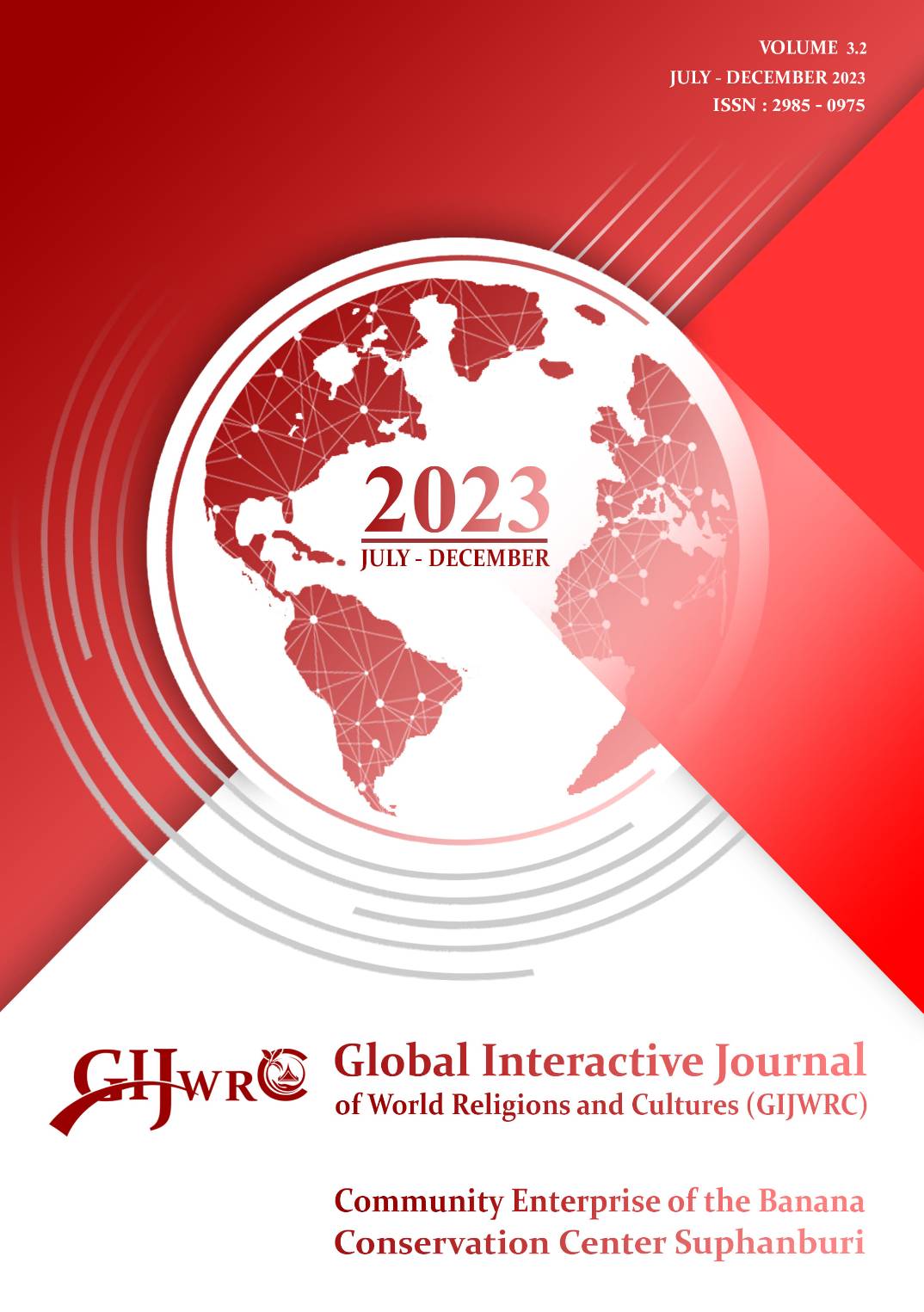CONCEPTS IN THE MIDDLE WAY OF THE CONFUCIAN PHILOSOPHY
Main Article Content
Abstract
Abstract
Confucian Middle Way referred to the state which was not leaning to one side, and a state that did not change the feeling and mood. It was a state of mind that was not biased when it created satisfactory and unsatisfactory impact. Therefore, the Middle Way of Confucius meant wise (Chu) and sincere (Chin) intelligence to make people saw all things as they were, not as they have appeared. When people could see all things as they were, our mind would know all things with neutral, not attached to it and left oneself to go on. Conducting of the middle way like returning to the original mind without embellishments as Leonard Chu Luan Chu said the middle way was none other; the fact was that common sense itself. Then, Confucius was importantly born as a religious teacher and as a recipient and transmission of tradition and ancient culture. Born of Truth and Ethics recognizing humans who were the center of development for teaching human faces and solved problems with its patience and intelligence. Confucius declared in Scripture regarding the changes (I-Ching). The five main relationships and responsibilities that a person should follow the five relationships were husband and wife, father, mother, son, daughter, brother to sister's friends and bosses with employees.
Article Details
References
Chamnong Thongprasert, Translator. (1994). Origin of Chinese Traditions,
Regions 1-3. Bangkok: Royal Institute. Published.
Pracha Sinchai. (2000). Lun Yu Scripture: Confucian Ethics Scripture.
Bangkok: Nature Publishing House.
Phra Maha Boonrueang Panyavachiro, (2001). Humanism in Confucian
Philosophy. Bangkok: Mahachulalongkornrajavidyalaya University.
Phra Maha Boonrueang Panya Vajiro. (1998). A study of the concept of
Humanism in Confucian philosophy. Master's Degree Thesis. Graduate School: Mahachulalongkornrajavidyalaya University.
Detailed Silanoi Translator., (2000). Building Life and Society According to
Confucian Doctrine, Bangkok: Dok Ya Na Publishing House.
Anatta (pseudonym). (2006). Studies on Scripture, Volume 1. Bangkok:
Quality of Life Promotion Publishing House.
Ong Sok. (1997). Confucius, the folk philosopher edition. Atikom
Sawatdiyan, translation. Bangkok: Applied Taoism Publishing House.
Archie J. Bahm, Prof. (Mp.). The Doctrine of Confucius. Khrongpan
Chaithanasarn, Translator. Bangkok: Delphi Publishing House.
Somparn Phromtha, (1997). The main sects of Mahayana Buddhism.
Bangkok: Dan Suttha Phim.
Pakorn Limpanusorn (Translator). (2002). Lie Tzu's Taoist Scriptures.
Bangkok: Creative Books Co., Ltd.
Archie J. Bahm. (1969). The Heart of Confucius: Interpretation of Genuine
Living and Great Wisdom. New York: Walker/Weatherhill.
Fung Yu-lan. (1944). The Spirit of Chinese Philosophy. London: Kegan Paul,
Trench, Trubner & Co. Ltd.
Confucius. (1951). The Great Digest the Unwobbling Pivot. The Analects,
Tr. By Ezra Pound. New York: A New Directions Book.
Chen Jingpan. (1993). Confucius as a Teacher. Malaysia: Delta Publishing Sdn
Bhd.
Leonard Shihlien Hsu. (1975). The Political Philosophy of Confucianism,
New York: Barnes & Noble Books.
James Legge. (1960). The Doctrine of the Mean, Chinese Classics vol. 1. Hong
Kong University Press.


